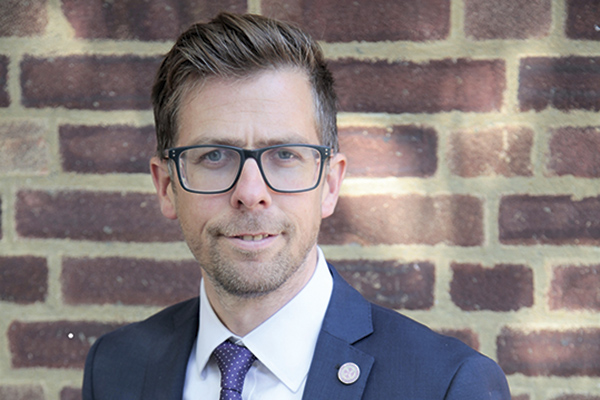Levelling up: Government’s White Paper fails to grasp the nettle
Andrew O'Neill
The UK has the highest level of regional economic inequality of any comparable country. Since the 2019 election, the government has trumpeted “levelling up” as its flagship policy and the Levelling Up white paper, released last week, was its attempt to bring some definition to a slogan that up to now has been blurry and vague.
The term “levelling up” was first used by Justine Greening, Secretary of State for Education between 2016 and 2018, who had a resolute focus on social mobility before her time in office and in Parliament was cut short. Education and training forms a significant part of the white paper. Many of its key ideas, including the so-called “Education Investment Areas” (55 “cold spots” where school outcomes are the weakest, almost all outside London and the South East), are rehashes of Greening’s proposed initiatives.
There are a number of issues the government must address if it is to improve the educational opportunities of children from the most deprived communities. It is right to concentrate resources on ensuring that children get the best start. At present, on leaving primary school, only 65 per cent of children have reached the expected standard in reading, writing and maths. Although the government has declared a “national mission” to ensure that 90 per cent of children meet the expected standard before entering secondary school, it has given very little detail about how this will be achieved. Ofsted’s current focus is on ensuring all schools offer a rich, varied and deep curriculum and it will be difficult for some schools, especially in deprived areas, to reconcile these priorities.
If our schools are to perform at the highest level, they must recruit and retain teaching and support staff of the highest calibre. The most recent statistics from the Department for Education show that just over 15 per cent of new teachers leave after one year and 32 per cent leave after five years. This level of turnover makes it almost impossible for schools to sustain a culture of excellence. The white paper proposes to offer retention payments of £3,000 per annum to maths and science teachers in schools in the Education Investment Areas. This will not stem the flow of teachers leaving the profession or stabilise staffing needs in the most deprived areas.
There has to be a completely different approach. The status of teachers, the way the profession is viewed as a whole, must be transformed. In tabloid headlines, it is not uncommon to see teachers accused of being “lazy” or of being “moaners” – insults you would never see casually thrown at doctors or nurses. Every day I see teachers and support staff working incredibly hard, taking on roles that extend far beyond teaching and into social care and counselling, as well as running out-of-hours clubs and activities. Yet the government has been lacklustre in its support of the profession.
Problems are not always solved by throwing money at them, but no system can improve significantly without investment. A new national funding formula for schools is included in the white paper, but it is actually a policy first announced in 2016 and repeatedly kicked into the long grass. The most deprived areas have significantly more children with special educational needs than those in more affluent areas. How can we “level up” these students if there is not enough money in the educational system as a whole?
There has been a habit in the last decade of the government announcing what sounds like a serious commitment to support education, only for it to fail to materialise. Sir Kevan Collins was appointed to assess what was needed to help young people recover the education they missed during the Covid-19 pandemic – particularly those living in the most deprived areas, where levels of school attendance were extremely low. He called for spending in the region of £15 billion; the government committed £1.4 billion. Collins resigned.
As every parent knows, the schools admissions process can be confusing and daunting, and make it more difficult for the children of disadvantaged families to access the school that would be best for them. If the government aspires to give every child the skills they need to fulfil their potential, no matter where they live, this should have been tackled in its white paper. Again, it failed to grasp the nettle. Over the past 10 years, we have seen six different Secretaries of State for Education; none has had enough time to allow for any kind of real, tangible change to be properly considered, let alone be delivered and its impact seen through.
As a long-term commitment to change society across healthcare, social care and employment opportunities, with the flourishing of every individual – through person-centred education and training – at its heart, “levelling up” would be more than a soundbite. It would be a 2,000-year old policy. We call it Catholic Social Teaching.
Andrew O’Neill is head teacher of All Saints Catholic College in west London.


 Votes : 0
Votes : 0










